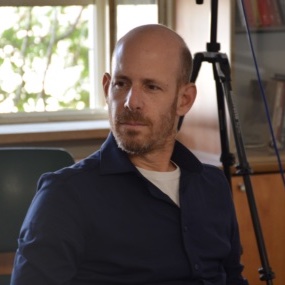
“Holocaust Horror: A Cultural History”
Professional Background
Kobi Kabalek is an assistant professor of Holocaust studies and visual studies in the Department of Germanic and Slavic Languages and Literature and Jewish Studies at Penn State University. He completed his dissertation, “The Rescue of Jews and the Memory of Nazism in Germany,” in 2013 and earned a PhD in history from the University of Virginia. Dr. Kabalek was a postdoctoral fellow at the Hebrew University in Jerusalem in 2014-2017, as part of the ERC project “Experience, Judgment, and Representation of WWII in an Age of Globalization.” In that role, he examined conflicting perspectives concerning the war in Mandatory Palestine and their impact on the postwar historiography of Israel and Zionism. His research engages with historical perceptions, moral sentiments, and memory in film, literature, auto/biography, oral narratives, and art in German, Israeli, and global Holocaust history. His current work explores marginalized and extreme phenomena in Holocaust testimonies, historical writing, and popular culture – with special attention to the role of fantasy, imagination, and horror – and their impact on our understanding and representation of the Holocaust.
Fellowship Research
Dr. Kobi Kabalek was awarded a Phyllis Greenberg Heideman and Richard D. Heideman Fellowship for his research project, “Holocaust Horror: A Cultural History.” His project studies Holocaust victims’ horror experiences to unravel their authors’ contemplations of the very definition of humanity and the borders of rationality and civilized sociality. His project draws from wartime diaries and postwar memoirs to explore episodes from horror tales and films that blur boundaries between the real and unreal, the historical and fantastic, and which features are essential to horror, a feeling that emerges in extreme situations and articulates the breakdown of social expectations. These features of horror stand at the heart of many responses to Nazism and the Holocaust, and expose the fragility of human conduct and modern ethics and question the boundaries between “civilization” and “barbarism.” They speak of Nazis as real-world incarnations of horrific fictional figures, such as vampires, mention terrifying monsters from Jewish apocalyptic traditions, and depict ghettos and camps as actual manifestations of medieval depictions of hell.
